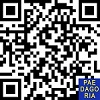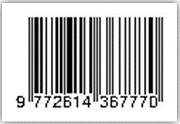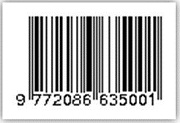THE EFFECT OF USING PROTEUS SOFTWARE AS A VIRTUAL LABORATORY ON STUDENT LEARNING OUTCOMES
Abstract
Abstrak: Tujuan dari penelitian ini adalah untuk mengukur dan mengetahui pengaruh penggunaan software proteus sebagai laboratorium virtual pada mata pelajaran elektronika dasar. Objek pada penelitian ini berjumlah 32 mahasiswa di kelas eksperimen dan 32 mahasiswa di kelas kontrol. Metode penelitian yang diaplikasikan adalah quasi eksperimental dengan tipe non-equivalent control group. Dalam teknik analisis data, uji-t digunakan untuk mengetahui perbedaan hasil belajar mahasiswa. Hasil penelitian menunjukkan bahwa nilai hasil belajar di kelas dengan menggunakan laboratorium virtual rata-rata adalah 73,5, standar deviasi 9,66, dan tingkat tren nilai tertinggi 18,75%. Sedangkan nilai kelas yang tidak menggunakan laboratorium virtual rata-rata adalah 67,84, standar deviasi 10,00, dan tingkat tren nilai tertinggi 6,25%. Hasil uji-t hasil belajar mata pelajaran elektronika dasar diperoleh t-hitung> t-tabel (2,3>1,999) yang artinya penggunaan laboratorium virtual berdampak positif atau meningkatkan hasil belajar mahasiswa pada mata pelajaran elektronika dasar. Penggunaan software proteus sebagai laboratorium virtual dapat menjadi solusi alternatif atas keterbatasan peralatan dan bahan untuk praktikum.
Abstract: This study aimed to measure and determine the effect of using Proteus software as a virtual laboratory on basic electronics subjects. Object The population in this study was 32 students in the experimental class and 32 students in the control class. The research method applied was quasi-experimental with the type of non-equivalent control group. In data analysis techniques, the t-test is used to determine differences in student learning outcomes. The results showed that the mean value of learning outcomes in class using virtual laboratories was 73.5, the standard deviation was 9.66, and the highest trend level was 18.75%. Meanwhile, the average score for the class that did not use virtual laboratories was 67.84, the standard deviation was 10.00, and the highest trend level was 6.25%. The t-test learning outcomes of basic electronics subjects obtained t-count> t-table (2,3> 1,999), which means that virtual laboratories have a positive or increased impact on student learning outcomes in basic electronics subjects. The use of proteus software as a virtual laboratory can be an alternative solution to the practicum's limited equipment and materials.Keywords
Full Text:
DOWNLOAD [PDF]References
Abdjul, T., Ntobuo, N. E., & Payu, C. (2019). Development of Virtual Laboratory-Based of Learning to Improve Physics Learning Outcomes of High School Students. Jurnal Pendidikan Fisika Indonesia, 15(2), 97–106. https://doi.org/10.15294/jpfi.v15i2.12367
Artanto, D., Budi Cahyono, E. A., Siswoyo, A., & Effendi, S. M. (2020). The effectiveness of learning in vocational education in mechatronics through making a simple simulation program. Journal of Physics: Conference Series, 1516(1). https://doi.org/10.1088/1742-6596/1516/1/012034
Edidas. (2019). Influence of the Simulation Program Methods to the Students Learning Outcomes on the Subject of the Microcontroller System. Journal of Physics: Conference Series, 1387(1). https://doi.org/10.1088/1742-6596/1387/1/012132
Firdaus, Fatiatun, Jumini, S., Trisnowati, E., & Dahnuss, D. (2020). Proteus as a virtual simulation to improve readiness and process skills in laboratory experiment. Journal of Physics: Conference Series, 1517(1). https://doi.org/10.1088/1742-6596/1517/1/012074
Fuada, S., & Wibowo, Aj. W. (2016). Desain dan Implementasi Virtual Laboratory Materi Osilator Analog berbasis IC OP-AMP. ELKOMIKA: Jurnal Teknik Energi Elektrik, Teknik Telekomunikasi, & Teknik Elektronika, 4(2), 134–147. https://doi.org/10.26760/elkomika.v4i2.134
González, J. D., Escobar, J. H., Beltrán, J. R., García-Gómez, L., & La Hoz, J. De. (2019). Virtual laboratories of electromagnetism for education in engineering: A perception. Journal of Physics: Conference Series, 1391(1). https://doi.org/10.1088/1742-6596/1391/1/012157
Gunawan, G., Nisrina, N., Suranti, N. M. Y., Herayanti, L., & Rahmatiah, R. (2018). Virtual Laboratory to Improve Students' Conceptual Understanding in Physics Learning. Journal of Physics: Conference Series, 1108(1). https://doi.org/10.1088/1742-6596/1108/1/012049
Hermansyah, H., Gunawan, G., Harjono, A., & Adawiyah, R. (2019). Guided inquiry model with virtual labs to improve students' understanding on heat concept. Journal of Physics: Conference Series, 1153(1). https://doi.org/10.1088/1742-6596/1153/1/012116
Hikmah, N., Saridewi, N., & Agung, S. (2017). Penerapan Laboratorium Virtual untuk Meningkatkan Pemahaman Konsep Siswa. EduChemia (Jurnal Kimia Dan Pendidikan), 2(2), 186. https://doi.org/10.30870/educhemia.v2i2.1608
Kholis, N., Syariffuddien Zuhrie, M., & Rahmadian, R. (2018). Innovation Online Teaching Module Plus Digital Engineering Kit with Proteus Software through Hybrid Learning Method to Improve Student Skills. IOP Conference Series: Materials Science and Engineering, 336(1). https://doi.org/10.1088/1757-899X/336/1/012036
Klentien, U., & Wannasawade, W. (2016). Development of Blended Learning Model with Virtual Science Laboratory for Secondary Students. Procedia - Social and Behavioral Sciences, 217(2), 706–711. https://doi.org/10.1016/j.sbspro.2016.02.126
Labcenter Electronics. (2012). Intelligent Schematic Input system (ISIS) User Manual. In Data Base (Vol. 3304, Issue January).
Latifah, Z., Ikhsan, J., & Sugiyarto, K. H. (2019). Effect of virtual chemistry laboratory toward cognitive learning achievement. Journal of Physics: Conference Series, 1156(1). https://doi.org/10.1088/1742-6596/1156/1/012034
Lestari, D. P., & Supahar. (2020). Students and teachers' necessity toward virtual laboratory as an instructional media of 21st century science learning. Journal of Physics: Conference Series, 1440(1). https://doi.org/10.1088/1742-6596/1440/1/012091
Maryuningsih, Y.-, Manfaat, B., & Riandi, R. (2019). Penerapan Laboratorium Virtual Elektroforesis Gel Sebagai Pengganti Praktikum Riil. Phenomenon : Jurnal Pendidikan MIPA, 9(1), 48. https://doi.org/10.21580/phen.2019.9.1.3320
Naukkarinen, J., & Sainio, T. (2018). Supporting student learning of chemical reaction engineering using a socially scaffolded virtual laboratory concept. Education for Chemical Engineers, 22, 61–68. https://doi.org/10.1016/j.ece.2018.01.001
Potkonjak, V., Gardner, M., Callaghan, V., Mattila, P., Guetl, C., Petrović, V. M., & Jovanović, K. (2016). Virtual laboratories for education in science, technology, and engineering: A review. Computers and Education, 95, 309–327. https://doi.org/10.1016/j.compedu.2016.02.002
Rachmawati, K. Y., Iswahyudi, C., & Susanti, E. (2014). Pengembangan Model Laboratorium Virtual Sebagai Solusi Keterbatasan Sumber Daya Pembelajaran. Prosiding Seminar Nasional Aplikasi Sains & Teknologi (SNAST), A-301-A306.
Rizal, A., Adam, R. I., & Susilawati, S. (2018). Pengembangan Laboratorium Virtual Fisika Osilasi. Jurnal Online Informatika, 3(1), 55. https://doi.org/10.15575/join.v3i1.140
Shadish, W. R., & Luellen, J. K. (2005). Quasi-experimental Designs. In B. S. Everitt & D. C. Howell (Eds.), Encyclopedia of Statistics in Behavioral Science (Vol. 3). John Wiley & Sons, Ltd. https://doi.org/10.1002/0470013192.bsa521
Sriadhi, Waluyo, B. D., & Simanjuntak, K. (2020). Pengembangan Trainer Mikrokontroler Berbasis Arduino Nano pada Mata Pelajaran Teknik Pemrograman Mikroprosesor dan Mikrokontroler Kelas XI Kompetensi Keahlian Teknik Audio Video di SMK N. 1 Lubuk Pakam. Jurnal Teknologi Informasi Dan Komunikasi Dalam Pendidikan, 7(1), 1. https://doi.org/10.24114/jtikp.v7i1.22626
Stahre Wästberg, B., Eriksson, T., Karlsson, G., Sunnerstam, M., Axelsson, M., & Billger, M. (2019). Design considerations for virtual laboratories: A comparative study of two virtual laboratories for learning about gas solubility and colour appearance. Education and Information Technologies, 24(3), 2059–2080. https://doi.org/10.1007/s10639-018-09857-0
Sukisna, & Suparwoto. (2020). Development of Outdoor Learning To Improving Learning Outcomes Reviewed From Abstract Thinking Ability , Response To Guidelines and Science Process Skills for. Paedagoria: Jurnal Kajian, Penelitian Dan Pengembangan Kependidikan, 11(1), 44–52. https://doi.org/10.31764/paedagoria.v11i1.1891
Triatmaja, A. K., & Khairudin, M. (2018). Study on Skill Improvement of Digital Electronics Using Virtual Laboratory with Mobile Virtual Reality. Journal of Physics: Conference Series, 1140(1). https://doi.org/10.1088/1742-6596/1140/1/012021
Tüysüz, C. (2010). The effect of the virtual laboratory on students' achievement and attitude in chemistry. International Online Journal of Educational Sciences, 2(1), 37–53.
DOI: https://doi.org/10.31764/paedagoria.v12i1.4247
Refbacks
- There are currently no refbacks.
Copyright (c) 2021 Bakti Dwi Waluyo, Salman Bintang, Sapitri Januariyansah

This work is licensed under a Creative Commons Attribution-ShareAlike 4.0 International License.
Paedagoria : Jurnal Kajian, Penelitian dan Pengembangan Kependidikan
Fakultas Keguruan & Ilmu Pendidikan | Universitas Muhammadiyah Mataram.
_______________________________________________
 | Paedagoria : Jurnal Kajian, Penelitian dan Pengembangan Kependidikan |
______________________________________________
CURRENT INDEXING:
EDITORIAL OFFICE:


















